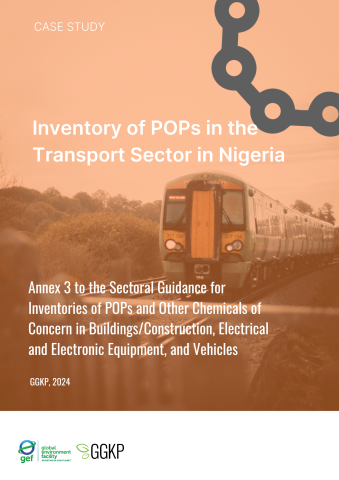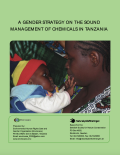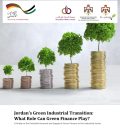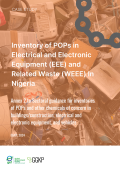
Many used vehicles, often with low environmental performance, are sent to developing countries where they are used for extended periods until they eventually break down. This practice has raised concerns about environmental impacts and sustainability. According to a report by the United Nations Environment Programme (UNEP), between 2015 and 2018, approximately 14 million used light-duty vehicles were exported worldwide, with around 80% of them going to low and middle-income countries. More than half of these vehicles were sent to Africa.
To better understand the situation and address the environmental concerns, this case study was conducted to establish an inventory of different persistent organic pollutants (POPs) present in the transport sector in Nigeria, and dynamic substance flow analysis of major POPs following the provisions of the Polybrominated Diphenyl Ethers (PBDE) inventory guidance. This case study is Annex 3 of GGKP's “Sectoral guidance for inventories of POPs and other chemicals of concern in buildings/construction, electrical and electronic equipment, and vehicles”.
As part of the GEF-funded and UNEP-led “Global Development, Review and Update of NIPs under the Stockholm Convention on POPs” project, the Green Growth Knowledge Partnership (GGKP) is executing Component 4, focused on disseminating information, managing knowledge and coordinating with the Stockholm Convention Secretariat to provide accessible, integrated tools and resources for all Parties.




